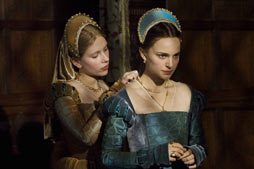By Alex Muhindura/reporter

Seventeen decades were successfully traveled in 45 minutes recently when Maxine Maxwell performed Echoes of The Past.
With performances on NE, NW and SE campuses March 12-13, the dramatic portrayal of five African-American women began in the 1800s and concluded in 1976.
At the beginning of each vignette, Maxwell gave a brief introduction of the character, explaining the historical significance of each.
Then she immersed herself into the character including mannerisms and speech.
If members of the audience had only heard the performance, they might have thought there were five separate people in the room.
The one-woman play began with Henrietta King, a slave in the early 1800s.
“I ain’t got no education. I don’t know when I was born, but I know that I was borned a slave,” she said in a syrupy Southern drawl.
Maxwell drew her audience into her character as her face was contorted heavily to the right and one of her eyes could not shut.
”You wanna know what slavery days was like?” she asked.
Maxwell, as the character King, explained how hard it was for slaves and told a harrowing story about how her face became crooked.
One day when she was a young girl, she was caught stealing a candy, and the master’s wife whipped her.
She kept trying to wiggle free, so the wife jammed her face under a rocking chair and rocked forward to keep her still, breaking several bones in the process.
Gasps could be heard all around the audience.
“Put yo hand in his left cheek,” she said. “That’s what slavery days was like.”
The next character, antislavery activist Sojourner Truth, was giving a speech at a women’s rights conference where, ironically, most of the speakers were men.
Apparently, they had been speaking about how men had more intellect and, therefore, deserved more rights.
They also spoke about the need to protect women since they were fragile.
After their presentations, Sojourner Truth gave a fiery sermon with a booming voice similar to that of an evangelical pastor.
“Look at my arm! I have ploughed and planted, and gathered into barns, and no man could head me. And ain’t I a woman?” she said.
“I have borne 13 children and seen most all sold off to slavery. And when I cried out with my mother’s grief, none but Jesus heard me! And ain’t I a woman?”
Maxwell then became journalist and black rights activist Ida B. Wells, whom she said was the most influential of the women in securing civil rights for blacks.
This segment focused on the time Wells was kicked out of a whites-only railcar and the lawsuit that ensued.
Speaking and moving with a very proper and genteel quality, she said the conductor told her to leave the car. When she refused, he attempted to force her out.
“Seeing as I had no other choice, I proceeded to bite into the back of his hand,” she said as the audience roared with laughter.
After being dragged from the car, Maxwell as Wells said she sued the railcar and won $500 in damages.
A headline from a local newspaper, she said, read “Darkie Damsel Gets Damages.”
Maxwell went to her next character Elizabeth Eckford, a 15-year-old member of the Little Rock Nine, who integrated Central High School in 1957.
She was very bouncy and excited, and her carefree attitude seemed to contrast with the description she gave of her parents, who were very worried.
As Elizabeth, she described the first day at Central where she was met by a mob determined to keep her out of the school.
“I tried to find a friendly face,” she said. “I saw an old woman that looked kind, but she turned and spit in my face.”
Shortly after, a man patted her shoulder and told her, “Don’t let them see you cry.”
His words seemed to give her the strength she needed to persevere.
The last woman portrayed was Winnie Mandela, the antiapartheid activist.
With an African accent, she discussed the uprising of Soweto, where 20,000 children marched in protest against apartheid.
“Guards opened fire with machine guns,” she said, “but the children kept coming.”
After her performance, the audience applauded for several minutes and eventually gave a standing ovation.
“I thought it was a great performance, and I learned quite a lot from it,” NE Campus student Mathew Zacks said.


























